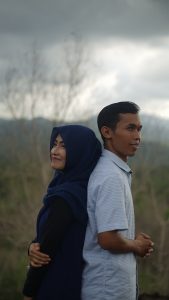Exploring the Rich Tapestry of Muslim Wedding Culture And Traditions

Muslim weddings, known as “Nikah” or “Zawaj,” are vibrant and culturally rich celebrations that reflect the diversity of the Muslim community worldwide. Rooted in religious traditions, these weddings are a harmonious blend of spirituality, family values, and cultural heritage. Our today’s guest from one of the muslim matrimony sites will delve into the fascinating tapestry of Muslim wedding culture, exploring the various customs, traditions, and the joyous celebrations that accompany this sacred union.
Religious Significance
At the heart of a Muslim wedding is the religious solemnization known as the “Nikah.” This ceremony is a sacred contract between the bride and groom, witnessed by family and friends, and officiated by an Islamic scholar or an Imam. The recitation of verses from the Quran and the exchange of vows form the essence of the Nikah, symbolizing the commitment of the couple to each other and to their shared Islamic values.
Pre-Wedding Rituals
Millions of muslims around the world use paid and free muslim matchmaking apps, marriage consultants and websites for a life partner. Then journey towards a Muslim wedding often begins with a formal engagement, where families exchange rings as a symbol of their commitment. Following this, there may be a series of pre-wedding rituals that vary across cultures and regions. These can include the “Mehndi” or henna ceremony, where intricate henna designs are applied to the bride’s hands and feet, and the “Haldi” ceremony, involving the application of turmeric paste on the bride and groom for a radiant glow.
Attire
Traditional attire plays a significant role in Muslim weddings. The bride typically adorns a stunning wedding dress, which can vary from region to region. In many Arab cultures, brides wear elaborate and heavily embroidered dresses, while in South Asian cultures, the bridal outfit may include a vibrant lehenga or saree. The groom often wears a “Sherwani” or a suit, complemented by cultural accessories such as a turban or a traditional cap known as a “Topi.”
The Wedding Feast
A central element of Muslim wedding celebrations is the communal feast or “Walima,” which is a joyous gathering of family and friends. The menu often includes a variety of traditional dishes, reflecting the diverse culinary heritage of the Muslim community. From biryanis to kebabs, the feast is a celebration of both love and the rich tapestry of Islamic culture.
Ceremonial Traditions
Several ceremonial traditions are observed during Muslim weddings, each contributing to the uniqueness of the celebration. The “Nikah,” or the signing of the marriage contract, is a formal and legal requirement, and the “Ruksati” marks the emotional moment when the bride leaves her parents home and ready to live a new life in her husband’s house.
Post-Wedding Celebrations
Beyond the wedding day itself, Muslim marriages are often followed by additional celebrations. The “Dawat-e-Walima,” a continuation of the wedding feast, is hosted by the groom’s family to celebrate the union and share their joy with the community.
If you are looking forward to celebrate such memorable moments but don’t know where to start then try to explore muslim matrimony apps to start your marriage journey.
Muslim weddings are a beautiful tapestry of traditions, customs, and celebrations, deeply rooted in religious values and cultural diversity. These ceremonies serve not only as a union of two individuals but also as a testament to the unity and strength of the broader Muslim community. As we celebrate the one-year anniversary of exploring the world’s cultures together, let us continue to embrace and appreciate the richness of traditions that make our global society so wonderfully diverse.
Newer Articles
- ChatGPT Dominates Wikipedia Views in 2023
- iRobot Assists in Selecting the Ideal Robot Vacuum Cleaner for This Christmas
- “Your Christmas or Mine 2” Launches Today on Prime Video

